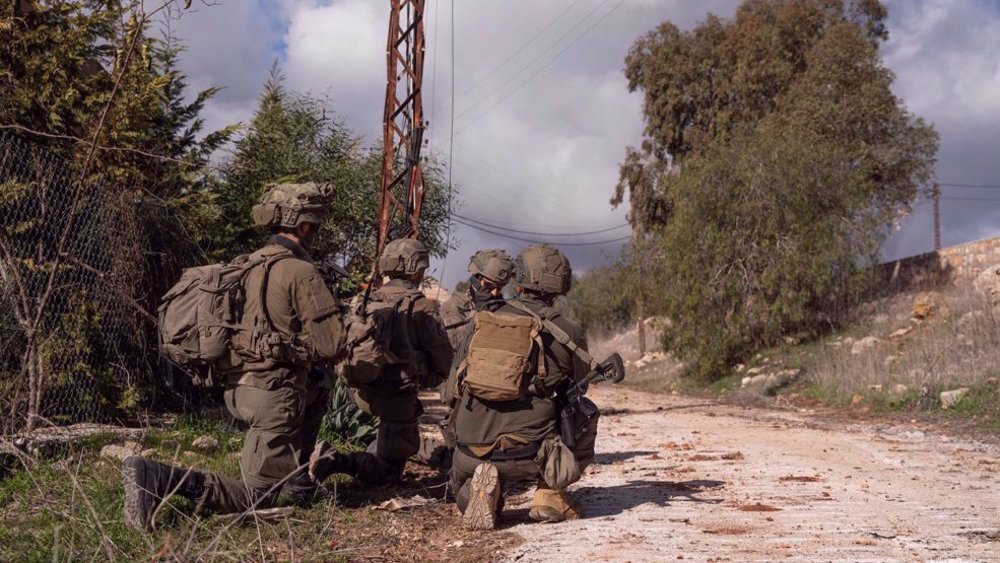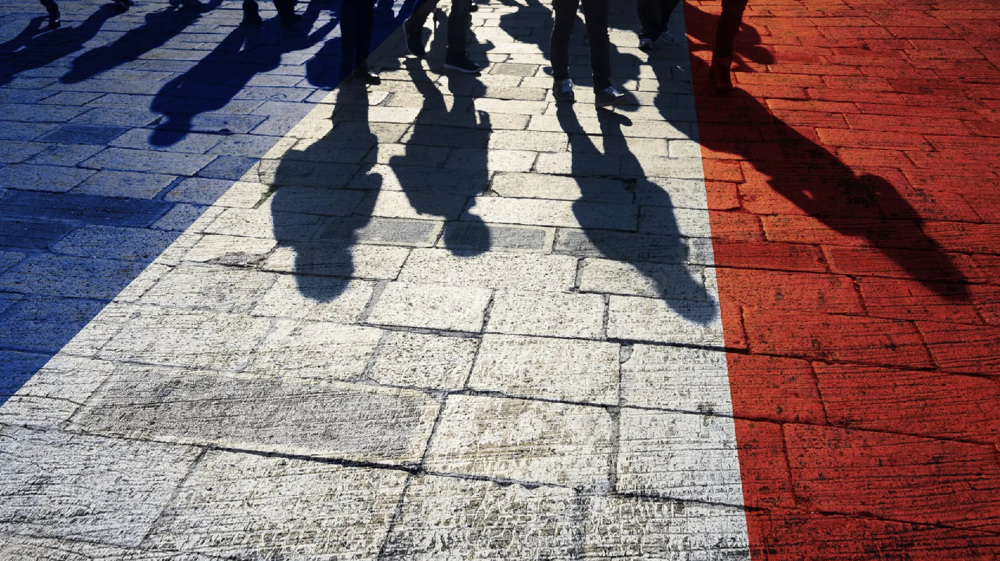French lawmakers adopt anti-terror bill 'at expense of' civil liberties
The French parliament has overwhelmingly adopted a new controversial counterterrorism bill, which will boost police surveillance powers and make it easier to close religious centers, as the European country is under a nearly two-year-old state of emergency.
Legislators in France’s lower house of parliament on Tuesday approved the bill by 415 votes to 127, with 19 abstentions, two days after a suspected member of the Daesh Takfiri terrorist group stabbed to death two young women at a train station in the Mediterranean port city of Marseille.
The bill encountered little resistance from a nation traumatized by a string of terror attacks by Daesh in recent years. However, the French left and right groups strongly criticized the law, arguing it would lead to the infringement of civil freedoms.
“Lawmakers realize that today’s threat is serious and that we must protect ourselves against terrorists. This must be done in a way that balances security and freedom,” Interior Minister Gerard Collomb told reporters after the vote, adding, “This text will help protect French people.”
He also described France as being “still in a state of war” as authorities struggle to eliminate the threat posed by foreign terrorists and home-grown militants. Collomb called the anti-terror bill a “lasting response to a lasting threat.”
According to the bill, authorities are allowed to close down a mosque or other places of worship if preachers are spotted to have encouraged assaults, glorified terrorism or spread radical “ideas and theories.”
Last week, UN experts also raised objections regarding the bill in a letter to the French government.

France is still on high alert as sporadic attacks happen across the country by Daesh operatives or people expressing loyalty to the terrorist outfit. Some 7,000 troops have been deployed in cities and towns as part of the Opération Sentinelle to guard high-risk areas such as transport hubs, tourist sites and religious buildings.
A total of 239 people, excluding the two victims of the Sunday stabbing attack in Marseille, have been killed in attacks in France since January 2015, when two Daesh sympathizers attacked the Charlie Hebdo magazine’s offices in Paris, killing 12 of its staff. The attack, denounced by Muslims across the world, was allegedly a response to the magazine’s blasphemous cartoon of Prophet Mohammad (peace be upon him).
The deadliest of all the attacks, however, came in November 2015, when Daesh terrorists brutalized the capital city of Paris in coordinated attacks, killing some 130 and wounding several hundreds of others. A state of emergency mandate was initially imposed shortly after the carnage and has since been extended several times.
The new legislation, which is designed to replace the current state of emergency measure, is expected to come into force on November 1. It would see most of the emergency powers enshrined in law, with restricted oversight from the judiciary.
According to the new law, the interior ministry, without approval from a judge, can establish security zones when there is “a threat,” limiting the movement of people and vehicles in and out of the zone. Authorities will also be able to carry out searches inside the area, and, equipped with judicial approval, can also raid private property.
Last month, Human Rights Watch said in a statement, “France’s new counterterrorism bill grants the executive far-reaching powers to clamp down on the ability of ordinary people in France to worship, assemble, move freely, express themselves and enjoy their privacy.”

US, France want mercenaries deployed in south Lebanon: Report

French immigration language test sets applicants for failure: Report

NATO faces 'moment of truth' on future of military alliance: France
Occupied al-Qud archbishop: Palestine will never forget Nasrallah
IRGC begins major Eqtedar drill in eastern Iran
Trump tells Zelensky to secure peace with Russia or risk losing Ukraine
Arrest of Electronic Intifada journalist exposes deep Zionist footprints in Switzerland
Iran, Azerbaijan stress opposition to foreign forces in South Caucasus
VIDEO | Press TV's news headlines
Iranian president wishes health, speedy recovery for Pope Francis
VIDEO | Exhibition of innovation and Iran’s economic future











 This makes it easy to access the Press TV website
This makes it easy to access the Press TV website